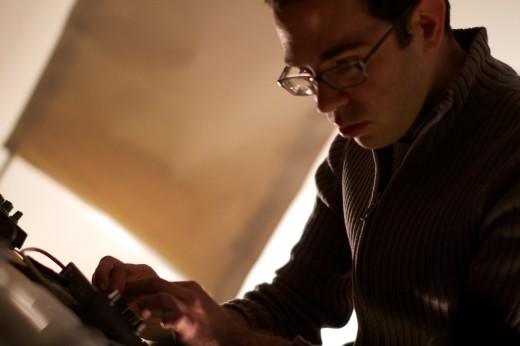If musical knowledge is shared, then, why not knowledge about the tools that make music, too?
Electronic musician Peter Kirn is the editor of Create Digital Music, an online chronicle of music and technology, and co-creator of the open source MeeBlip hardware. He will speak to the broader question of what open design can mean for music in general – as economic tool, collaborative design catalyst, and how it can transform musical instruments. His own hardware then becomes a case study in how shared design culture might become explicitly open source.
Music’s unique place in culture adds to the discussion of what the significance of open design can be. Musicians and music lovers have a unique relationship with their tools. While much recent technology has been proprietary in nature, makers have also had a long history of sharing common knowledge about how circuits and code can produce sound. Recently, that has led to more explicit sharing, as industry giants (Korg) and innovative newcomers (monome) share schematics and code. As digital musicians fabricate new ways of playing, this shared community can become vital, as artists modify both the mechanics of their instruments and techniques of their performance and production.
MeeBlip is the first open source music hardware to attempt the transition to broad usage as an end user product, not just a boutique item or hobbyist project. In two years in production, over a thousand units have gotten into the hands of musicians. That has meant some hard-earned lessons in manufacturing, shipping, support, and scaling. It has also yielded surprising developments in user modifications and DIY projects around the synthesizer.
Now, we get to discuss some of those lessons, how a business model can embrace complete openness while maintaining sustainability, and where the MeeBlip – and other such musical instruments – can go in the future.















